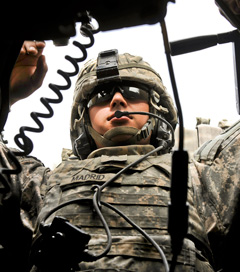Support justice-driven, accurate and transparent news — make a quick donation to Truthout today!
Cambridge – At the Cold War’s end, some pundits proclaimed that “geo-economics” had replaced geopolitics. Economic power would become the key to success in world politics, a change that many people thought would usher in a world dominated by Japan and Germany.
Today, some interpret the rise in China’s share of world output as signifying a fundamental shift in the balance of global power, but without considering military power. They argue that a dominant economic power soon becomes a dominant military power, forgetting that the United States was the world’s largest economy for 70 years before it became a military superpower.
Political observers have long debated whether economic or military power is more fundamental. The Marxist tradition casts economics as the underlying structure of power, and political institutions as a mere superstructure, an assumption shared by nineteenth-century liberals who believed that growing interdependence in trade and finance would make war obsolete. But, while Britain and Germany were each other’s most significant trading partners in 1914, that did not prevent a conflagration that set back global economic integration for a half-century.
Military power, which some call the ultimate form of power in world politics, requires a thriving economy. But whether economic or military resources produce more power in today’s world depends on the context. A carrot is more effective than a stick if you wish to lead a mule to water, but a gun may be more useful if your aim is to deprive an opponent of his mule. Many crucial issues, such as financial stability or climate change, simply are not amenable to military force.
Today, China and the US are highly interdependent economically, but many analysts misunderstand the implications of this for power politics. True, China could bring the US to its knees by threatening to sell its dollar holdings. But doing so would not only reduce the value of its reserves as the dollar weakened; it would also jeopardize US demand for Chinese imports, leading to job losses and instability in China. In other words, bringing the US to it knees might well mean that China would bring itself to its ankles.
Judging whether economic interdependence produces power requires looking at the balance of asymmetries. In this case, it resembles a “balance of financial terror,” analogous to the Cold War military interdependence in which the US and the Soviet Union each had the potential to destroy the other in a nuclear exchange. In February 2010, a group of senior Chinese military officers, angered over US arms sales to Taiwan, called for China’s government to sell off US government bonds in retaliation. Their suggestion was not heeded.
Economic resources can produce soft-power behavior as well as hard military power. A successful economic model not only finances the military resources needed for the exercise of hard power, but it can also attract others to emulate its example. The European Union’s soft power at the end of the Cold War, and that of China today, owes much to the success of the EU and Chinese economic models.
Economic resources are increasingly important in this century, but it would be a mistake to write off the role of military power. As US President Barack Obama said when accepting the Nobel Peace Prize in 2009, “We must begin by acknowledging the hard truth that we will not eradicate violent conflict in our lifetimes. There will be times when nations – acting individually or in concert – will find the use of force not only necessary but morally justified.”
Even if the probability of the use of force among states, or of threats of its use, is lower now than in earlier eras, the high impact of war leads rational actors to purchase expensive military insurance. If China’s hard power frightens its neighbors, they are likely to seek such insurance policies, and the US is likely to be the major provider.
This leads to a larger point about the role of military force. Some analysts argue that military power is of such restricted utility that it is no longer the ultimate measuring rod. But the fact that military power is not always sufficient to decide particular situations does not mean that it has lost all utility. While there are more situations and contexts in which military force is difficult to use, it remains a vital source of power.
Markets and economic power rest upon political frameworks, which in turn depend not only upon norms, institutions, and relationships, but also upon the management of coercive power. A well-ordered modern state is one that holds a monopoly on the legitimate use of force, and that allows domestic markets to operate. Internationally, where order is more tenuous, residual concerns about the coercive use of force, even if a low probability, can have important effects – including a stabilizing effect.
Indeed, metaphorically, military power provides a degree of security that is to order as oxygen is to breathing: little noticed until it becomes scarce, at which point its absence dominates all else. In the twenty-first century, military power will not have the same utility for states that it had in the nineteenth and twentieth centuries, but it will remain a crucial component of power in world politics.
Copyright: Project Syndicate, 2011.
For a podcast of this commentary in English, please click here.
Read more from Joseph S. Nye here.
Press freedom is under attack
As Trump cracks down on political speech, independent media is increasingly necessary.
Truthout produces reporting you won’t see in the mainstream: journalism from the frontlines of global conflict, interviews with grassroots movement leaders, high-quality legal analysis and more.
Our work is possible thanks to reader support. Help Truthout catalyze change and social justice — make a tax-deductible monthly or one-time donation today.
